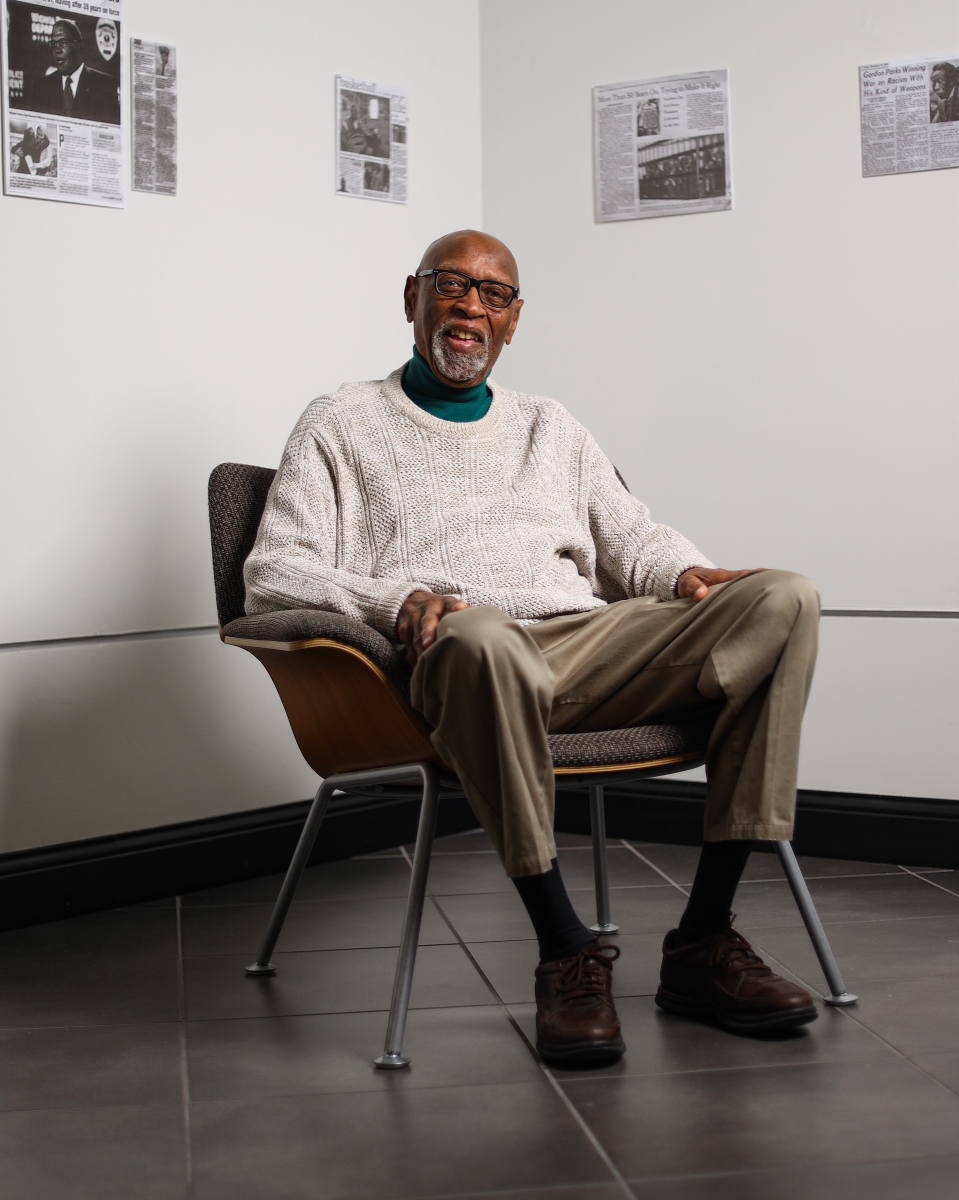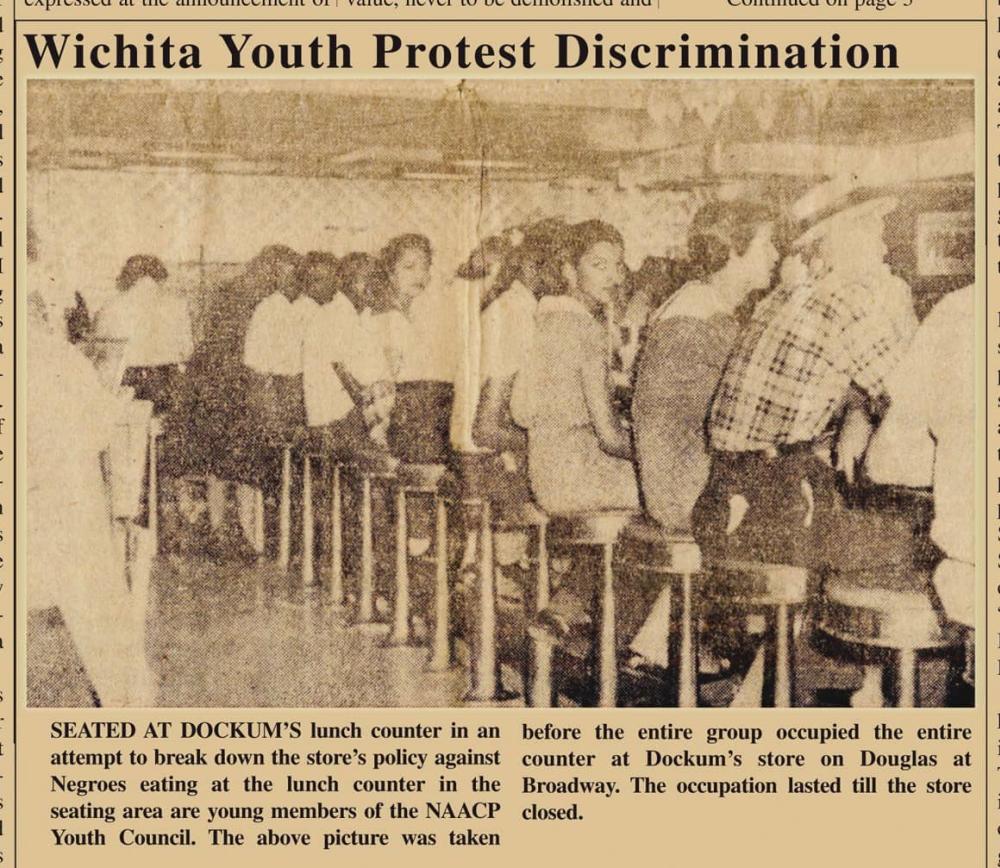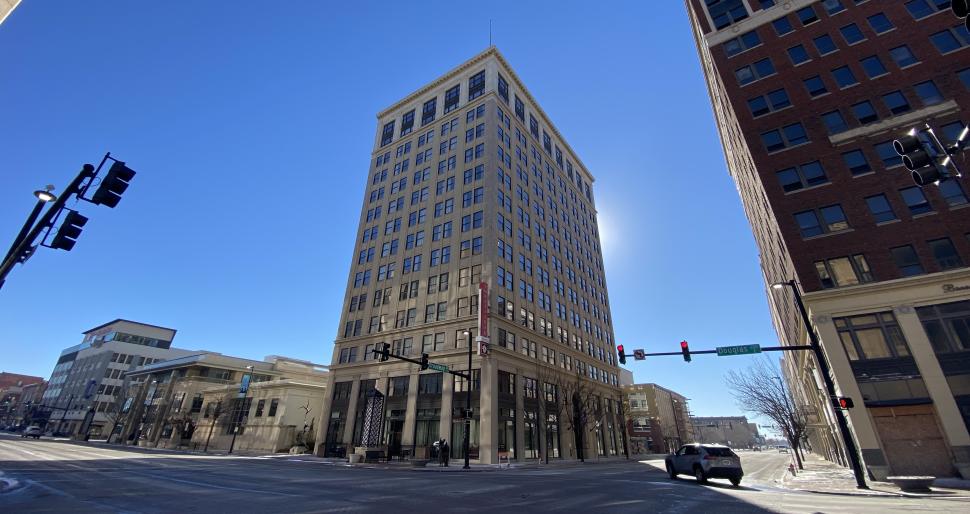Photo: Dockum Drug Store circa 1955. Credit: Edgar B. Smith, wichitaphotos.org
It helped change the course of history – but few people even today know about it. The 1958 Dockum Drug Store Sit-in was an effort to end segregation in Wichita and the United States. This quiet movement spoke loudly to the passion of the students who led it, making it the first organized sit-in in the country, happening two years before the Greensboro, North Carolina, Sit-In.
The Dockum Drug Store (owned by Rexall) was one of the most popular eating establishments in downtown Wichita, which like many of the other restaurants and stores of the day only served white people. African Americans could order food to go, but could not sit in the diner and eat.
Fed up with having to wait outside to be served their food, 10 well-dressed and polite students entered Dockum Drug Store in July 1958 to defy that policy and fight for change.
 (Dr. Galyn Vesey)
(Dr. Galyn Vesey)
Dr. Galyn Vesey, one of those brave 10 students from Wichita’s NAACP Youth Council, remembers the experience. Even today he feels the sting and embarrassment of that time being denied the right to eat and dine with the other patrons.
For two weeks, the students went in every day, filled the lunch counter seats and attempted to place an order. They endured taunts and jeers from white patrons who did not welcome the open defiance to the store policy.
Dr. Vesey, now 85, recalls having to sit there and endure it all. The cause was bigger than the jeers. Even without the full backing of their parents, local leaders and others, these young people were change-makers before it became a trend all across the South.
This was not easy. Dr. Vesey and his fellow students had to practice how to maintain their cool in heated situations. They were told over and over again in their training that they could not react and escalate the situation.
Dr. Vesey recalls a man intentionally bumping him with his shoulder. Though it didn’t hurt him physically, it wounded him emotionally to know how hated he and others were for just wanting equal treatment.
Finally, after about a month of peacefully protesting, on Aug. 11, the owner of the drugstore realized he was losing too much money and told his staff to serve the Black students sitting at the lunch counter. Those students ended segregation at Dockum Drug Store in Wichita. Other Rexall stores around the city followed suit and desegregation spread across Kansas. The NAACP would model this strategy of peaceful resistance throughout the nation, first in Oklahoma City on Aug. 19, 1958, and then in Greensboro, North Carolina on Feb. 1, 1960.
This experience of Dr. Vesey’s and those other brave students was immortalized in 1998, with a 20-foot-long bronze sculpture of a lunch counter and patrons.
That sculpture was formerly located in the Chester I. Lewis Reflection Square Park, but will soon be getting a new, permanent home. Funding is being raised for renovations to Finlay Ross Park at 123 W. Douglas Ave., consisting of $2.2 million, which will provide the history and artifacts of the many African Americans who made an impact in the community.

"The Enlightener" newspaper clipping from August 7, 1958. Credit: Wichita-Sedgwick County Historical Museum Facebook
There was very little local and national attention of the Dockum Sit-In. The sole media mention was a single photo in the Wichita Enlightener – the city’s Black newspaper.
WATCH:
Co-host of NBC's “TODAY” and Wichita-native Sheinelle Jones talks with Dockum Drug Store sit-in participants in the 2021 series titled “Changemakers.” The series aims to "highlight the accomplishments of Black voices who are leading in their communities and working to inspire change." Read the full story and view the series here.

The Ambassador Wichita, an Autograph Collection hotel, today sits on the site of the original Dockum Drug Store. The hotel features historic photos and also pays homage to its history by naming its speakeasy-style bar Dockum.
Learn more about the history and culture of Black Wichita.







